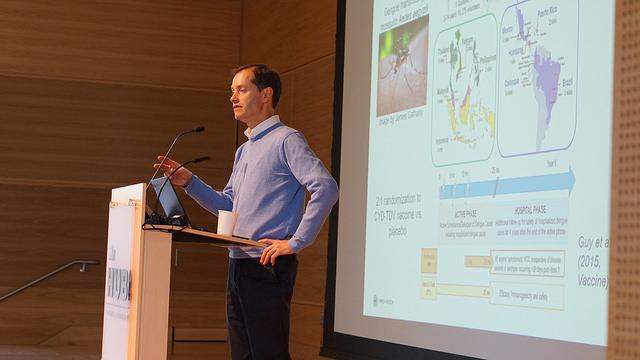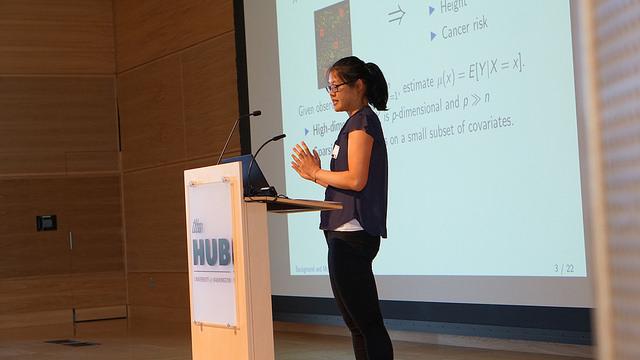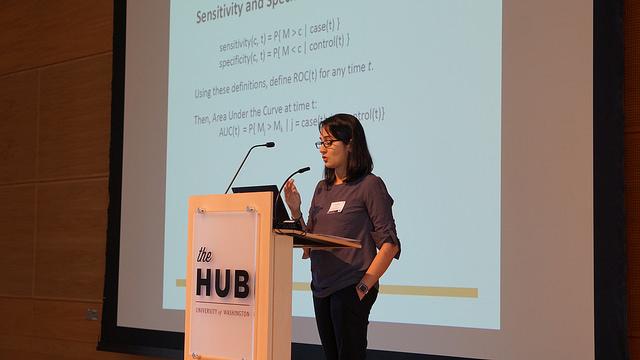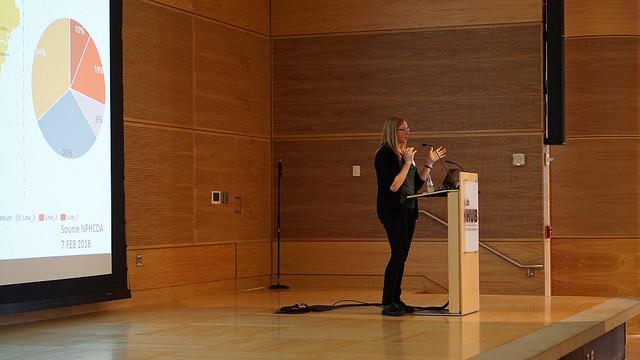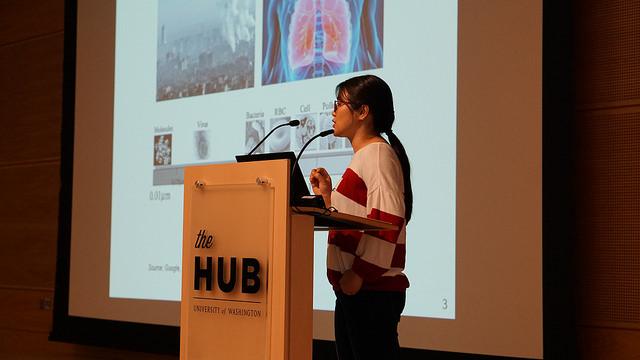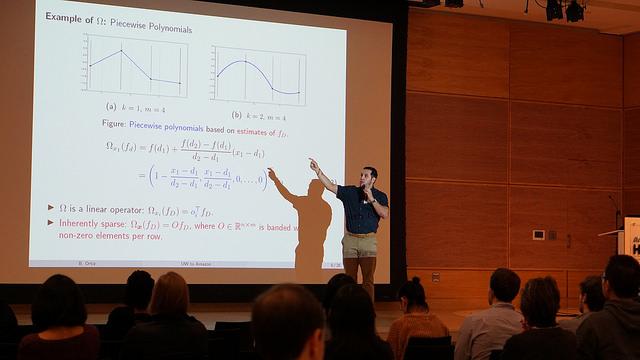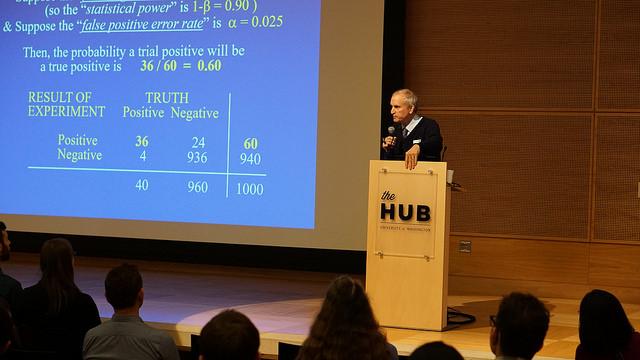The first-ever UW Biostatistics Colloquium brought together an impressive roster of speakers which included established and emerging voices from the Pacific Northwest biostatistics community. Held November 8, the Colloquium featured senior PhD students, junior alumni investigators and seasoned researchers representing research across academic, non-profit, government and industry. Presentations showcased how the field of biostatistics is changing and the significant ways biostatistics makes a real-life impact in public health research.
“The Biostats Colloquium was eye-opening. It provided a great deal of insight into a variety of ongoing UW research projects and exposed me to new ways in which biostatisticians can have a meaningful impact on public health,” said first-year PhD student Avi Kenny.
Third-year PhD student Kendrick Li concurred, “I met people working in different areas and applying statistics in various ways. It’s inspiring and reaffirming to know that what we learn in the [UW’s Biostatistics] program is making a huge impact on society.”
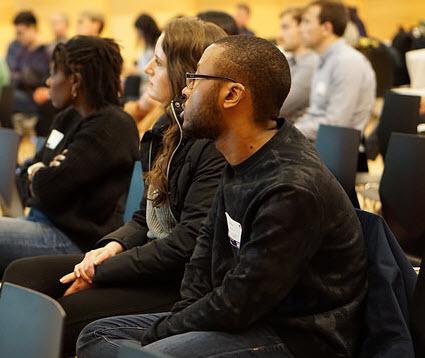
Presentation topics were wide-ranging and included statistical inference in populations with mixed ancestry, dengue vaccine efficacy, and statistical modeling to inform policies on global health, to name a few.
“We wanted to highlight how UW Biostatistics provides leadership and how we are connected to the science that drives the work,” said Department Chair Patrick Heagerty when outlining goals for the event. “We wanted to demonstrate that we value and embrace innovation and that we do so in a rigorous way.”
Presenters found value in the colloquium as well. “The first Biostatistics Colloquium was a big hit from my perspective,” said Jennifer Clark Nelson (PhD, ‘99), senior investigator with Kaiser Permanente Washington. “The format—with roundtables, posters, talks, and discussion—was perfect for engaging with students about their work, aspirations, and career questions.”

PhD student presenter Kelsey Grinde enjoyed the opportunity to talk about her research with faculty and students who don’t work in her specific area. “We have a couple active research areas in our department (e.g., statistical genetics, spatial statistics, machine learning) and I find that we often end up talking about our work just with others in that group. I think the colloquium highlighted how many connections there are across our subfields in terms of the work we do and the types of problems we tackle.”
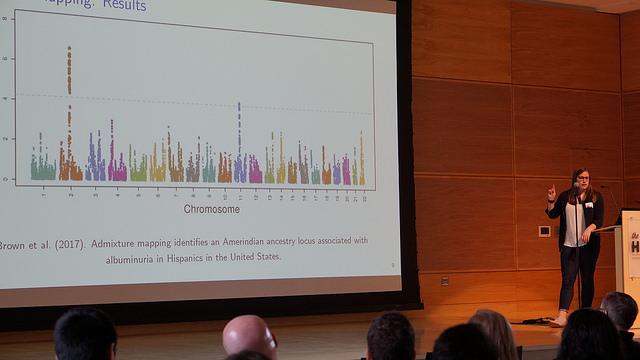
During the networking lunch, students were able to interact and seek advice from working professionals. Table hosts included representatives from Adaptive Biotechnology, Amazon, Fred Hutchinson Cancer Research Center, The Gates Foundation, Google, and UW’s Center for Biostatistical Research.
The post-lunch poster session provided an opportunity for additional students to present their research. “This was an unrivaled chance to make connections with the Seattle biostatistics community,” said MS poster presenter Alex Paynter. “It was a blitz education on clearly explaining my work and I received abundant feedback about what I might investigate further. I left the colloquium inspired by the great innovation and vast impact of the attendees.”
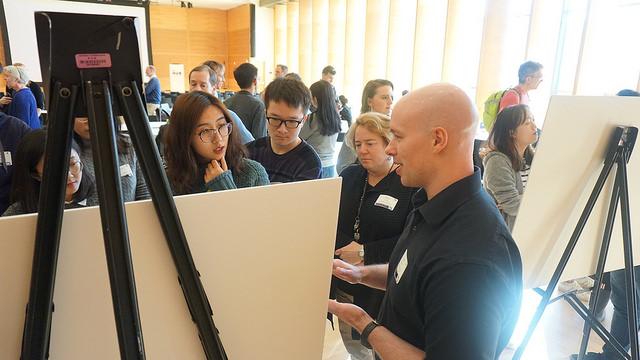
All agree a future UW Biostatistics Colloquium is on the agenda. “It was quite special to see the excitement among students, faculty, alumni and guests,” said Lurdes Inoue, graduate program advisor and lead organizer for the event. “We’ve started thinking about the next colloquium and how to enrich the students’ experience and enhance opportunities for future collaborations. I would love to expand our reach to draw more alumni and representatives from other institutions and organizations.”
Sign up to receive information about the next biostatistics colloquium.
More highlights

